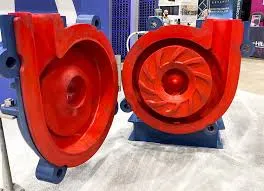Greek
- Afrikaans
- Albanian
- Amharic
- Arabic
- Armenian
- Azerbaijani
- Basque
- Belarusian
- Bengali
- Bosnian
- Bulgarian
- Catalan
- Cebuano
- Corsican
- Croatian
- Czech
- Danish
- Dutch
- English
- Esperanto
- Estonian
- Finnish
- French
- Frisian
- Galician
- Georgian
- German
- Greek
- Gujarati
- Haitian Creole
- hausa
- hawaiian
- Hebrew
- Hindi
- Miao
- Hungarian
- Icelandic
- igbo
- Indonesian
- irish
- Italian
- Japanese
- Javanese
- Kannada
- kazakh
- Khmer
- Rwandese
- Korean
- Kurdish
- Kyrgyz
- Lao
- Latin
- Latvian
- Lithuanian
- Luxembourgish
- Macedonian
- Malgashi
- Malay
- Malayalam
- Maltese
- Maori
- Marathi
- Mongolian
- Myanmar
- Nepali
- Norwegian
- Norwegian
- Occitan
- Pashto
- Persian
- Polish
- Portuguese
- Punjabi
- Romanian
- Russian
- Samoan
- Scottish Gaelic
- Serbian
- Sesotho
- Shona
- Sindhi
- Sinhala
- Slovak
- Slovenian
- Somali
- Spanish
- Sundanese
- Swahili
- Swedish
- Tagalog
- Tajik
- Tamil
- Tatar
- Telugu
- Thai
- Turkish
- Turkmen
- Ukrainian
- Urdu
- Uighur
- Uzbek
- Vietnamese
- Welsh
- Bantu
- Yiddish
- Yoruba
- Zulu
Telephone: +86 13120555503
Email: frank@cypump.com
Δεκ . 25, 2024 20:33 Back to list
High-Performance Submersible Pump for Heavy-Duty Applications and Industrial Use
Heavy Duty Submersible Pumps The Backbone of Industrial Fluid Management
In the world of industrial fluid management, heavy duty submersible pumps play a crucial role in various applications. These robust and reliable pumps are designed to operate underwater, making them particularly beneficial in challenging environments such as wastewater treatment plants, mining operations, and construction sites. This article delves into the features, advantages, and applications of heavy duty submersible pumps, shedding light on why they are the backbone of industrial fluid management.
Understanding Heavy Duty Submersible Pumps
Heavy duty submersible pumps are specially engineered to handle large volumes of fluids and solids. Unlike standard pumps, which require a horizontal setup, submersible pumps are fully submerged in the fluid they are pumping. This unique design allows for a more efficient pumping process, as the motor is located at the bottom of the pump, reducing the need for long suction pipes and the associated losses.
Constructed from durable materials such as stainless steel, cast iron, or high-grade thermoplastics, these pumps are built to withstand harsh conditions and corrosive environments. Many models come equipped with additional features such as automatic thermal overload protection, double mechanical seals, and fouling resistant impellers, ensuring they can handle the rigors of continuous operation.
Key Features
1. High Efficiency Heavy duty submersible pumps are designed for maximum hydraulic efficiency, ensuring that they can move large volumes of water or other fluids quickly and effectively.
2. Self-Priming Being submersible, these pumps do not require priming prior to use, which saves time and labor during setup.
3. Versatility With a range of sizes and capacities, these pumps can tackle various applications, from dewatering to sewage management. They can handle both clean and dirty fluids, making them suitable for numerous industries.
heavy duty submersible pump

5. Corrosion Resistance The materials used in the construction of these pumps provide resistance to corrosion and abrasion, which is critical in environments where chemical exposure is a concern.
Applications
Heavy duty submersible pumps find their applications across a broad spectrum of industries. Some of the most common applications include
- Wastewater Treatment These pumps are vital in transporting sewage and waste from treatment facilities. Their ability to handle solids and maintain high flow rates makes them indispensable in keeping wastewater systems operational.
- Construction and Mining In construction sites, submersible pumps are used for dewatering operations, removing excess water to create safe working conditions. Similarly, in mining, they assist in draining groundwater, allowing for efficient extraction of minerals.
- Irrigation and Flood Control Farmers utilize heavy duty submersible pumps for irrigation purposes, providing an efficient means to manage water supply. In flood-prone areas, these pumps are crucial for managing floodwaters and preventing property damage.
- Industrial Processing In manufacturing, submersible pumps are often used in processes that require the movement of chemicals or other liquids, further enhancing their versatility.
Conclusion
Heavy duty submersible pumps are essential tools for managing fluids in a variety of industrial applications. With their robust construction, high efficiency, and ability to operate in challenging conditions, they continue to be a preferred choice for businesses looking to optimize fluid management processes. As technology advances, the capability and efficiency of these pumps are expected to improve, making them even more integral to industries worldwide. Investing in a reliable heavy duty submersible pump can lead to increased productivity, reduced downtime, and ultimately, a more efficient operation. In an ever-evolving industrial landscape, these pumps indeed represent the backbone of fluid management.
-
pipeline pump - Chi Yuan Pumps Co., LTD.|High Efficiency&Low Noise
NewsJul.31,2025
-
ISG Series Vertical Pipeline Pump - Chi Yuan Pumps Co., LTD.|High Efficiency, Energy Saving, Low Noise
NewsJul.30,2025
-
ISG Series Vertical Pipeline Pump- Chi Yuan Pumps|High Efficiency&Low Noise
NewsJul.30,2025
-
ISG Series Vertical Pipeline Pump-Chi Yuan Pumps Co., LTD.|High Efficiency&Energy Conservation
NewsJul.30,2025
-
ISG Series Vertical Pipeline Pump - Chi Yuan Pumps Co., LTD.|Advanced Hydraulic Design&Energy-Efficient Solutions
NewsJul.30,2025
-
ISG Series Vertical Pipeline Pump - Chi Yuan Pumps Co., LTD.
NewsJul.30,2025










